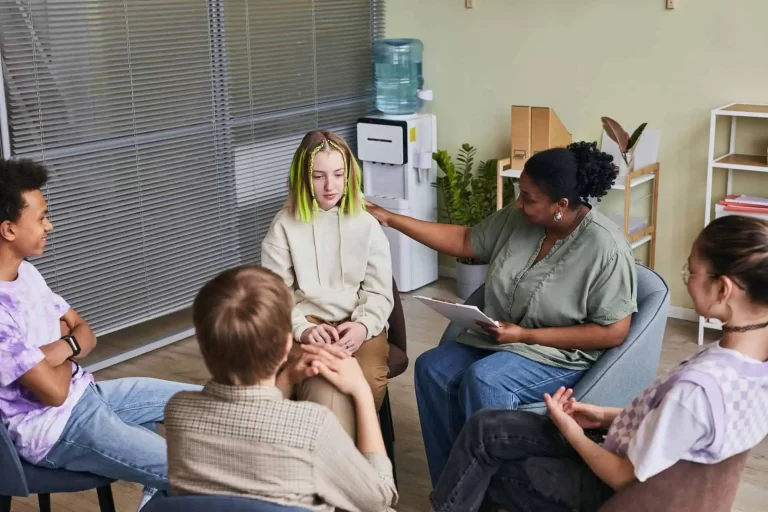Do you know anyone who is looking for help with their addictions and mental health?
Mental illnesses are easiest to treat when they’re in the early stages.
As a result, here are some mental health resources that can help you right now!
What Are Your Options?
1. Seek help from a mental health professional: Talk to a counselor in your area who can help you manage your fears and anxieties. They will be able to provide you with advice and insights into how to deal with your current problem. Your local mental health awareness organizations can help.
Many health care professionals that treat mental health and drug or alcohol use will offer a “sliding-fee scale” payment option. This means the price you pay depends on how much money you make. When you call to set up an appointment, ask if they have a sliding-fee scale or other options.
2. Go to the nearest hospital: Your local hospital can give you immediate assistance with your mental health issues. The people who work at a hospital know of other professionals in your area that can provide you with the proper treatment. In addition, some hospitals offer various mental health services that are available to the public.
3. Contact your doctor: Your family doctor is a great source in finding available treatment centers in your area. Explain to your doctor what is going on regarding your anxieties and ask if he or she knows of anyone that can help you. Your doctor will be able to give you some referrals.
4. Go to your local government websites: These places will have information about health services in your area. Find your local mental health centers by contacting your local and state government office and explaining your situation.
5. Talk to your priest or minister: Your local church may know of programs in your area that you could go to in overcoming your depression and addictions. Many churches offer support groups when it comes to dealing with your mental health issues.
6. Call your insurance company: Your insurance company can provide a list of mental health services and other treatment centers that are in your health plan and are in your area. A person can call their insurance company to get information about where to go for assistance.
7. Talk to your friends: Some of your friends may struggle with fear and anxiety. Ask the people you know if they have any suggestions on where you can go for treatment. In addition, make sure that your friends can keep things confidential.
Finding Mental Health Support Services
A person can go on the internet to get information on what is in their area. You can look for these options in your community to help manage your mental health issues.
1. Hotlines and warmlines: They provide support by telephone for people in emotional states and people with mental health conditions. Hotlines provide emergency support and crisis intervention and warmlines provide assistance, comfort, and referral services.
2. Drop-in Centers: These are organizations that are generally run by people with mental health conditions for their peers. Drop-in centers may organize activities such as support groups that can help you or your loved ones.
3. Support groups: These groups meet at various places in your community such as churches, schools, or government buildings. You can find support groups on the Internet, local mental health centers, or by asking other people.
4. Local nonprofits: Some places may have therapists, psychologists, or psychiatrists who donate their time and agree to see patients for free or at a reduced cost. Many groups will organize professionals who will donate some time each week to see patients. These professionals will meet at drop-in centers or other clinics.
Financial Help For Your Mental Health
If you do not have a lot of money, you can talk to your doctor, an insurance provider, a mental health professional, or your local health center to discuss options like sliding scale fees, insurance coverage, and potential financial assistance programs available in your area.
You can contact your county and state mental health agencies and local leaders.
1. Health Insurance: Insurance through the federal government is available through Medicare, Medicaid, or an insurance plan offered through the Affordable Care Act Marketplace. Government insurance and ACA healthcare plans are prohibited from denying coverage or charging more to cover a pre-existing condition, including mental health issues or substance abuse.
The Affordable Care Act (ACA) Marketplace is a health insurance marketplace that allows people to buy health plans. The Marketplace offers a range of health plans that meet coverage standards.
2. Medicare and Medicaid: Medicaid and Medicare are federally funded insurance programs and qualifying is based on income, age, and disability status. Medicare is a federal program for people 65 and older, while Medicaid is a joint federal and state program for low-income people. Both programs provide health insurance that covers doctor visits.
3. Disability benefits: Social Security Disability Insurance (SSDI) or “Disability” provides monthly payments to people who have a disability that stops or limits their ability to work. Applying for disability benefits can be a good option even if you’re able to work, but it’s a necessity if mental illness is preventing or severely limiting you from finding a job.
4. Community mental health centers: These centers offer low-cost or free care on a sliding scale to the public. Typical services include emergency services, therapy, and psychiatric care for adults and for children. You can expect to go through an interview that determines the care you will receive.
5. Your insurance policy: The first thing to find out is what mental health benefits your insurance policy offers. Review your insurance policy so that you are clear about whether your policy includes coverage for mental health services and any steps you must take to have certain services covered.
6. Manage your prescription costs: It is important to let your doctor know if you cannot afford your prescriptions. Discuss with your doctor if switching to generic drugs or less expensive brand-name prescription drugs is a safe option for you.
Like What You Read? Get Stan’s Book!
Stan’s book has been featured in the news. His book will give you many options in managing your mental health. This will save you time and money and will increase your chances of finding the answers to your mental health issues.


